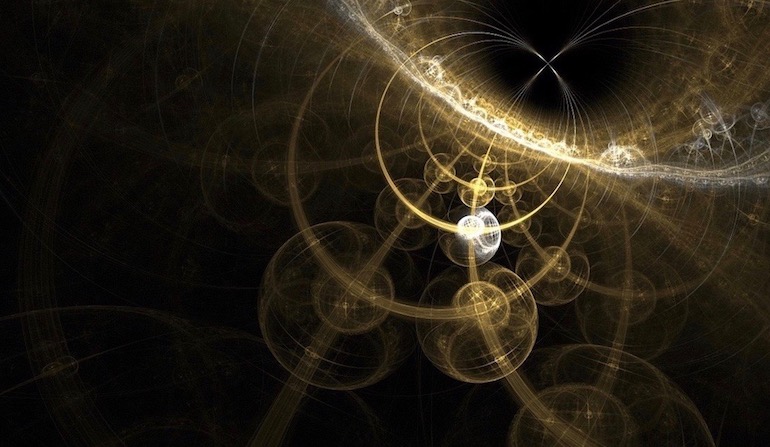 Neuroscience & Mind
Neuroscience & Mind
 Physics, Earth & Space
Physics, Earth & Space
Is Free Will an Illusion?


Denial of free will is a dogma of materialism. It is essential to the materialist ideology: if we are wholly matter, and matter is wholly governed by physical law, there is no room for free will. We only appear to be free to choose. In reality, materialists assert, we are carnal robots completely at the mercy of our genes and environment.
Alfredo Metere, an expert in theoretical and computational physics, artificial intelligence and computer science, and a senior research scientist at Berkeley, argues in Cosmos Magazine that astrophysics, and not merely biology, confirms that free will is an illusion.
Metere:
Physics is based on the idea that nature is mechanistic, which means that it works like a machine. A machine is just a system, and therefore, by definition, it is a collection of elements, each of them with a specific, possibly different function, all working together to achieve a specific purpose, general to the whole machine.
17th-century physics was based on the idea that nature is mechanistic, but in the 21st century we’ve set aside that illusion. The essence of quantum mechanics is that nature is not mechanistic (that was what so disturbed Einstein about quantum theory). Nature is an ensemble of potential states brought to reality by observation.
Nature Is Not a Machine
Heisenberg pointed out that the best metaphysical framework for quantum theory was Aristotelian hylemorphism: the collapse of the quantum waveform by measurement is akin to the reduction of potency to act by the active intellect. For Aristotle, the distinction between nature and machines was sharp: machines had accidental, not substantial, forms. Artifacts are assemblages of substances that have no natural affinity to work together. The relationship between nature and machines is analogical, at best. The metaphysical basis of the quantum world is still the subject of much debate, but on this all informed quantum physicists agree: nature is not a machine.
After asserting that nature is a machine, Metere invokes musical ensembles, Planck lengths, continuous functions, and fractals, and finally gets around to the Big Bang:
If we believe in the Big Bang Theory — and the universe’s continuous expansion is a strong indication that such theory must be correct — the initial state of the universe was a single point (known as a singularity) that then expanded to the cosmos we know and perceive today, which, of course, includes us… If so, there is a causal relationship between the Big Bang and us. In other words, free will is not allowed, and all of our actions are just a mere consequence of that first event. Such a view is known as “determinism”, or “super-determinism” (if one finds it productive to reinvent the wheel).
Metere begs the question: is determinism true? It’s remarkable that he doesn’t know the answer. Determinism is most certainly not true, at least local determinism in nature.
Determinism is the theory that the state of the universe at any moment completely determines the state of the universe a moment later. It would seem that this is a metaphysical, rather than physical, claim: how could it possibly be tested empirically? Remarkably, due to the work of Irish physicist John Bell in the 1960s and experimental physicists working after him, determinism can be and has been tested scientifically.
Nature Is Indeterminate
Physicist Brian Greene provides an excellent discussion of the indeterminate nature of quantum physics in chapter four of his book The Fabric of the Cosmos. Succinctly, researchers using Bell’s theoretical insight into quantum entanglement have shown that there are no deterministic local hidden variables. This means that the final state of entangled quantum particles is not determined by any variables in the initial state. Nature at its most fundamental level is indeterminate. The states of bound particles are not determined by any local variable at the moment of separation.
Bell’s inequality and the experimental work that has followed on it conclusively demonstrate that quantum entanglement, and thus nature, is not determinate, at least locally. There remains the remote possibility of non-local determinism, but that view is considered fringe and is rejected by nearly all physicists working in the field. It is a scientific fact that determinism in nature as commonly understood is simply not true.
There are several more philosophical and scientific reasons, in addition to the indeterminate nature of physics, to confirm the reality of free will, but they are for a future occasion.
A Demonstrably False Claim
Based on his erroneous assertion of determinism, Metere concludes:
… [F]ree will is an inevitable illusion for us humans, due to our subjective perception of the universe, rather than its innermost nature.
Why would a scientist of the stature of Metere make such a demonstrably false claim? Is he unaware of Bell’s theorem and the experimental work that followed on it? (Bell’s inequality theorem is taught in undergraduate physics courses.) If he is aware of the science, and disagrees with the theory or result, honesty would compel him to provide a discussion of the state of the science and his dissent from it. Yet Metere simply makes a false assertion, under the imprimatur of scientific expertise. Denial of free will based on determinism is either a confession of scientific ignorance or it is a deliberate deception.
Such ignorance and deception, regrettably, are the hallmarks of materialism and free will denial.
Image credit: insspirito, via Pixabay.
